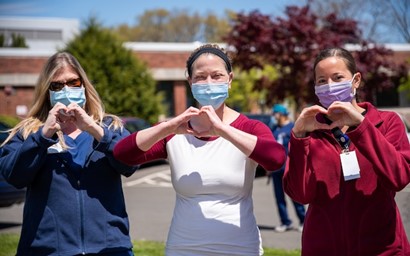
In the corridors of hospitals and clinics, nurses stand as the compassionate guardians of health and healing. From the pioneering days of Florence Nightingale to the present, nursing has blossomed into an esteemed profession.
Yet, in the midst of this noble calling, a pressing concern has emerged—a shortage of these dedicated caregivers. The International College of Health Sciences delves into the heart of this issue, unravelling the intricate reasons behind this crucial gap in healthcare.
Understanding the Reasons Behind the Shortage
There are numerous reasons why there is a nursing shortage, but the main reasons are burnout (which in turn leads to high turnover), a toxic work environment, and a lack of work life balance.
Burnout
Burnout is defined as a state of emotional, physical, and mental exhaustion caused by excessive and prolonged stress. It has become a big issue with nurses, due to a variety of circumstances.
• COVID-19
Feeling stressed and burnt out from work is a very real reality for many nurses, especially after the COVID-19 pandemic. Hospitals were overwhelmed and many nurses experienced both verbal and physical abuse from patients.
On top of working longer hours to deal with the increase of sick patients, many nurses got sick themselves, which put more of a strain on the number of available people to work.
• Aging Population
Technology and better healthcare has been a blessing in that more of the human population can live longer; however, with longer lives comes an increased risk of developing more long-term diseases. Nurses will often have to treat patients that have several different diseases, which is not only more complicated but also more stressful.
By the year 2029, there will be a 73% increase in U.S. adults aged 65 and older, which could strain the already struggling nurseforce and medical field.
• Aging Nurses
On a similar note, there are more nurses that are reaching retirement age as well. Some may stay longer, but many will not and decide to leave the workforce. This means there will be less nurses to train others as well as take care of patients.
Unsupportive Work Environment
Within the realm of nursing, job satisfaction has hit a historical low. The profession, inherently demanding, bears the added weight of enduring emotional, verbal, and even physical abuse from patients and colleagues alike.
Hospitals, while places of healing, can also be breeding grounds for fear and confusion, causing individuals to inadvertently unleash their frustrations on the very caretakers striving to ease their discomfort. This confluence of challenges forms a crucible that nurses navigate daily, demanding an even greater level of resilience and compassion from these unsung heroes of healthcare.
Work Life Balance
A buzzword nowadays is work-life balance, meaning that an individual is able to prioritize career demands with personal life demands. Nursing requires long hours of work, sometimes through the middle of the night, so it can be hard to take care of family, friends, and having fun if you’re working or too tired.

What Can Be Done About the Nursing Shortage
In the face of the pressing nursing shortage, what proactive steps can be taken? While no single solution offers a foolproof fix, here are three compelling suggestions worth considering.
Staffing Ratios
One of the biggest solutions is staffing ratios. Nurses will often feel overwhelmed because they have to take on too many patients. With staffing ratios, there will be a maximum number of patients that a nurse can take on.
This is easier said than done, of course. If there is a high demand for nurses, then hospitals will have no other choice but to assign patients to them.
Technology
Additionally, incorporating more technology into hospitals and other healthcare buildings is a must. Technology can take on some of the more tedious work that nurses have to do, which may help with workload. This will depend on what kind of technology is available, but there are new inventions every day.
Become a Nurse
Becoming a nurse and pursuing formal education in the field stands as a powerful antidote to the prevailing nursing shortage. By joining the ranks of healthcare professionals, individuals not only alleviate the strain on the system but also contribute to the critical demand for skilled and compassionate caregivers.
While the journey may be rigorous, the rewards are immeasurable. Nurses play an indispensable role in the healthcare ecosystem, offering solace, expertise, and crucial care to those in need. Their impact is felt not only in the physical realm but also in the profound emotional support they provide to patients and their families.
Conclusion
Despite the challenges that come with the territory, the nursing profession remains a beacon of hope and healing. In moments of vulnerability and distress, nurses emerge as pillars of strength, exemplifying the unwavering dedication that defines their noble calling.
As the demand for healthcare continues to surge, the need for passionate and skilled nurses has never been more evident. In choosing this path, one not only embarks on a fulfilling career but also steps up as a vital force in meeting the healthcare needs of our communities.



